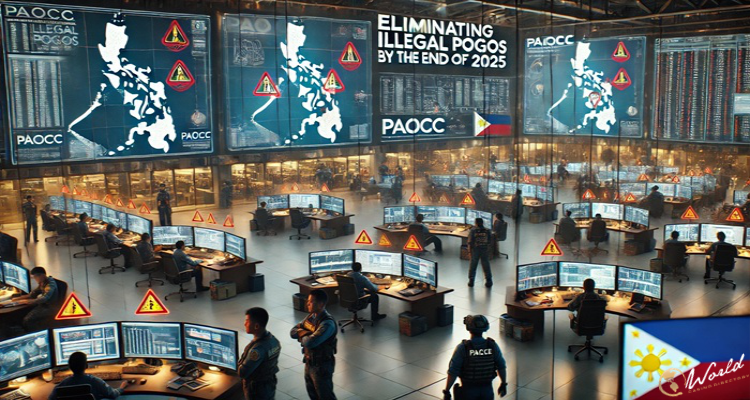The Philippine government, represented by the Presidential Anti-Organized Crime Commission (PAOCC), has set a formidable goal to completely eradicate illegal Philippine Offshore Gaming Operators (POGOs) by the close of this year. This initiative is part of a broader effort to cleanse the nation of unregulated gambling activities that pose significant social risks. During a media briefing at the Saturday News Forum in Quezon City, PAOCC Executive Director Undersecretary Gilbert Cruz articulated the government’s firm stance against these illicit operations.
Adapting strategies amidst ongoing bans:
Following President Ferdinand R. Marcos Jr.’s sweeping ban on POGOs, which took effect in January, the operational landscape for these entities has drastically changed. Originally prominent in expansive, well-known hubs, illegal gaming activities have now dispersed into more covert operations, retreating into residential areas such as apartments, condominiums, and even temporary setups in hotels and resorts.
Undersecretary Cruz highlighted the current situation, emphasizing the ongoing challenges, “Only once we completely shut down these remaining operators can we declare the Philippines free from POGOs.” He noted the resilience of these operations, despite heightened governmental pressures, “They know we are going after them, but they persist because POGO operations generate significant income.”
As Philippine News Agency reported, the PAOCC’s recent operations underscore the critical nature of their mission. In a notable operation, authorities rescued 34 Indonesians from a suspected POGO hub in Pasay, where they were reportedly coerced into participating in fraudulent operations. This event not only showcased the agency’s commitment to dismantling these networks but also highlighted the human rights abuses occurring within these clandestine operations.
Further illustrating the severity of the issue, Cruz shared harrowing details from another rescue where a Chinese national, identified as Wang Ye Fu, was found with visible signs of torture. Investigations revealed a chilling aspect of the criminal operations, with mobile phone footage showing other foreigners being subjected to severe violence. “This shows how ruthless these criminals have become,” Cruz explained, noting a shift in the operations where previously, Filipino accomplices were employed, but now the syndicates operate with their own enforcers.
Cambodia: the new frontier for illegal operations:
As the Philippine government tightens its grip on illegal POGOs, many operators are looking to relocate. Cruz pointed out that Cambodia is becoming a preferred destination for these groups due to its perceived lenient regulatory environment. “The company is headed to Cambodia because it believes operating there is easier, so they want to shift their Philippine operations to Cambodia,” he stated, indicating a proactive measure to alert Cambodian authorities about this emerging threat.
The ongoing battle against illegal POGOs is not only about law enforcement but also about fostering community awareness and international cooperation. The PAOCC is calling on the public, especially families with missing relatives suspected to be involved in these illegal activities, to assist in rescue and identification efforts.
The PAOCC remains optimistic about achieving a “zero POGO” status in the Philippines by the year’s end, reflecting a significant national effort to address and eliminate an industry that has long been associated with economic and social disruptions.



